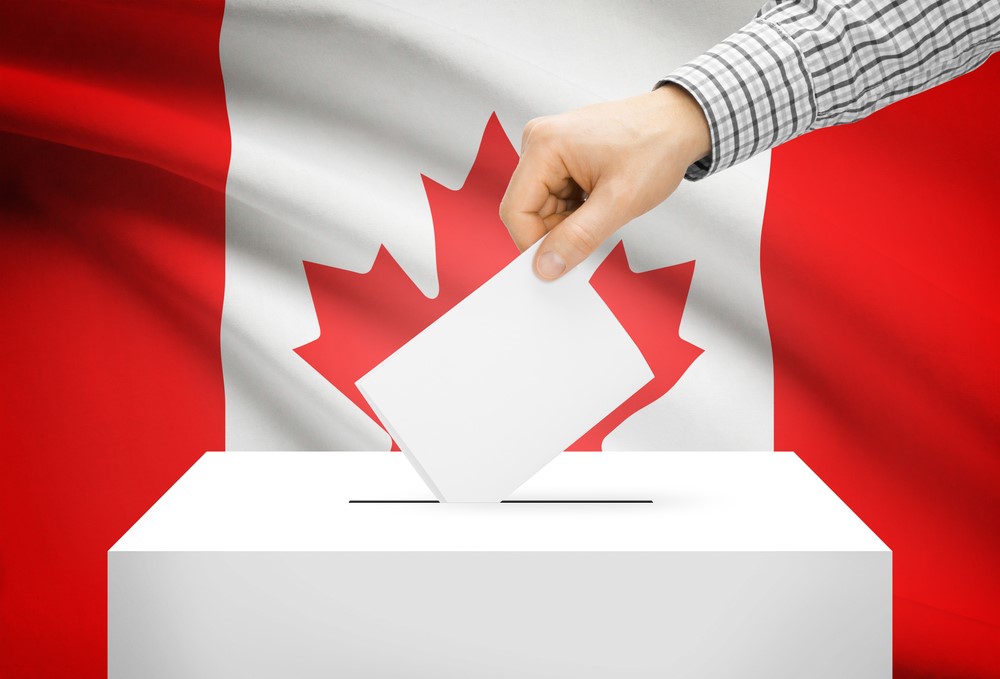Canadians will vote on September 20th for a new federal government. While most of us encourage each other to cast our votes and to actively participate in our democracy, we sometime forget to underline the importance of who we vote for. We read about the parties’ platforms, listen to politicians’ pitches and promises, and we compare between the leaders.
If the duty of voting is indeed priority one, the who we vote for is even more important. Most of us are quick to criticize our politicians, identify their errors, or disapprove of their actions (or lack of). Voting is our opportunity to make our voice heard in way that can actually make a difference.
Research indicate that the medical profession (doctors and nurses) is held in high regard from the general public. Other professions like teachers, firefighters, military personnel, the clergy, also earn high points of respect on the scale of admired or trusted professions. Politicians, however, usually score at the bottom of the list. So here is an important question: Why do politicians score low? Is the problem with them or us or in the nature of the job?
This research has prompted me to make a list of the key criteria to review when selecting the candidate to vote for. My list does not tell you who to vote for, but simply ask you to consider these questions before making your choice. See if you agree with my seven criteria.
- Character: This is my first criteria. No candidate is perfect, but people typically continue to do what they have done in the past. If a politician has continuously made the same errors of judgement and shown poor ethics, time and again, don’t bank on a change. Character trumps good looks, eloquent speeches, and qualifications for me. There are no perfect leaders, but leaders must be trustworthy.
- Authenticity: This is another key trait I look for. It is becoming more difficult to find politicians that are not influenced by PR specialists, the ones who force political correctness on every message, which results in watering down the message to the extent that politicians fail to communicate effectively (that is, you don’t know what they are talking about or they refuse to answer the actual question being asked!) They become readers of the teleprompter and well edited scripts, kind of like actors. I vote for leaders that come across as real people who walk the talk.
- Order of priorities: Can you read into the leader’s priorities? This is more difficult to identify in leaders, but leaders should put their constituents as priority one. What is best for their country, province, people, followed by their party, and lastly their own career. Anytime this simple prioritization has a different order of priorities, leaders are bound to make the wrong decisions. Over a period of time, you can determine if a leader has his/her priorities right.
- Good management skills: Leaders are seldom experts in their field; they are usually generalists. They do not need to be experts. Leaders can hire experts. Leaders’ success lies in recruiting the right people and deploying them in the right positions. A poor track record in recruiting team members is a huge handicap for leaders. Good leaders promote transparency and openness. Hiring friends and using processes caried out behind closed doors whereby no one quite knows how someone is chosen are unacceptable.
- Fiscal stewardship: Political leaders must be good stewards of finances. They must take fiscal responsibilities seriously. They are the custodians of future generation obligations. Would you give your bank card and credit card to an irresponsible person? That is what we do if we vote the wrong leader in. We ask them to go shopping with our bank account and credit card.
- Direction: Good leaders do not aim for perfection. They aim for excellence. They know that they will not get everything right. They focus on moving in the right direction. Unforeseen circumstances will cause leaders to slow down, accelerate or take a detour, but the ultimate goal is to make progress. Floating is not an option. Swimming in the direction of the destination is key.
- Big government or small government? I kept this difficult criterion last as opinions will for sure vary. Most people recognise the two extremes: Communism and big social government on the far left and strong Capitalism on the far right. Where is the happy medium? Whether you prefer to lean to the right or the left, is OK but as Canadians we need to “right” our direction on the following trends with urgency:
(a) Canada combined Federal and Provincial debt will reach $2 Trillion in 2020/2021.
(b) The size of our government has been on the rise across Canada and total government spending far exceeds the historic optimal level.
(c) The average Canadian family spent more than 42% of its income on taxes in 2019. More than housing, food and clothing costs combined. In other words, you and I are working from January to June for our government. This is an alarming trend for us and our children.
As we prepare to vote on September 20th, I hope my suggested seven key criteria are helpful and practical.
WC 885


